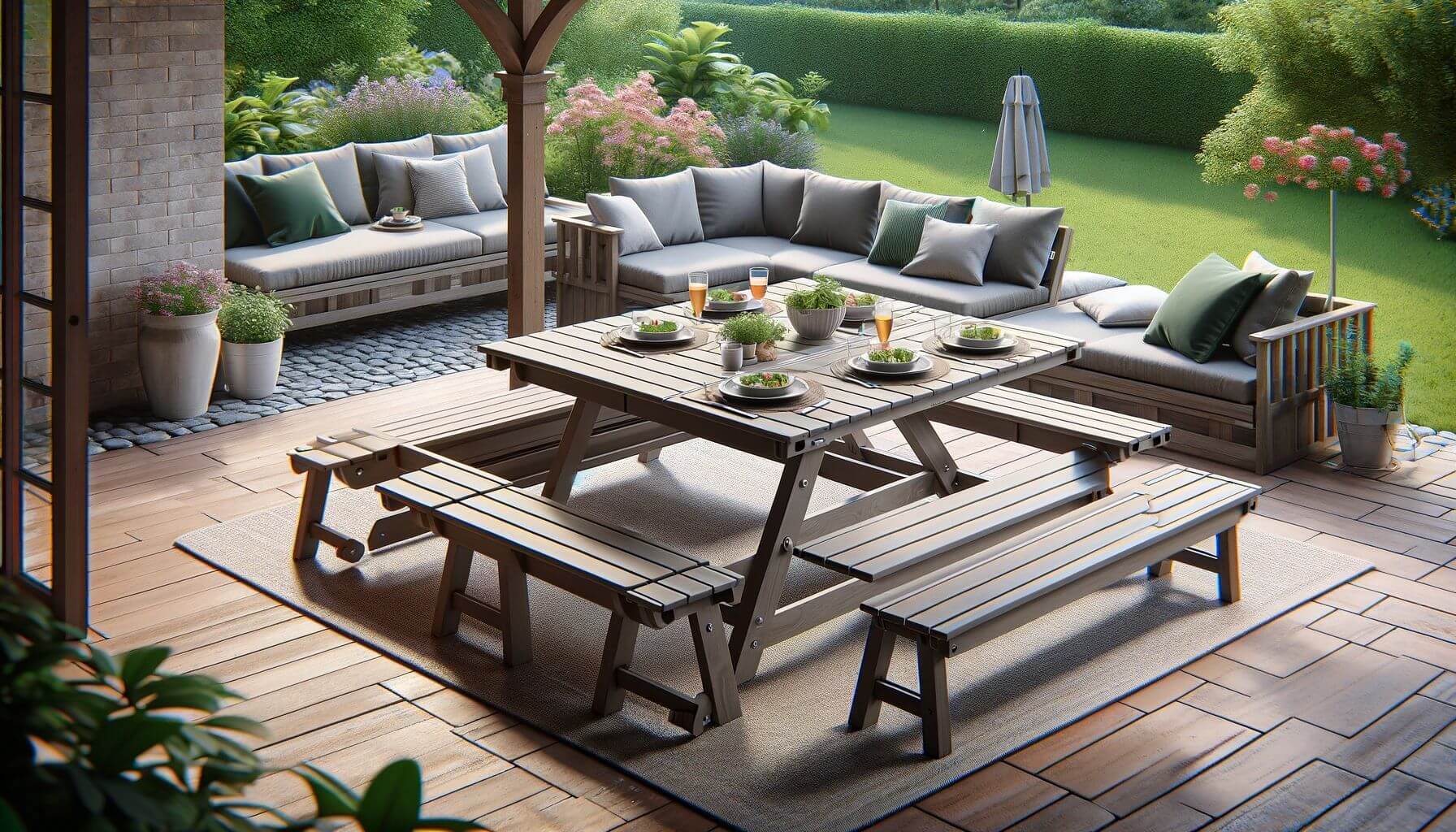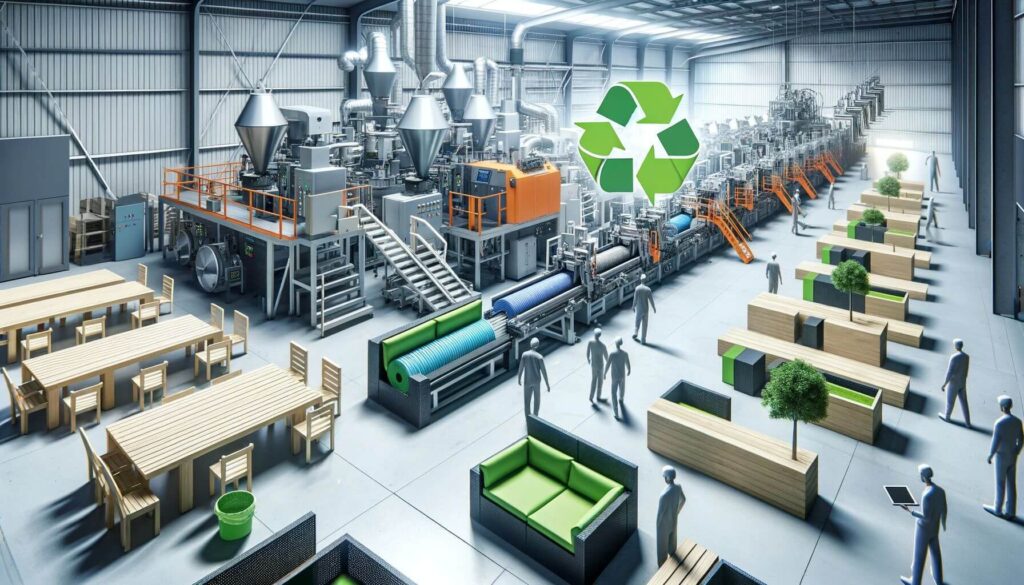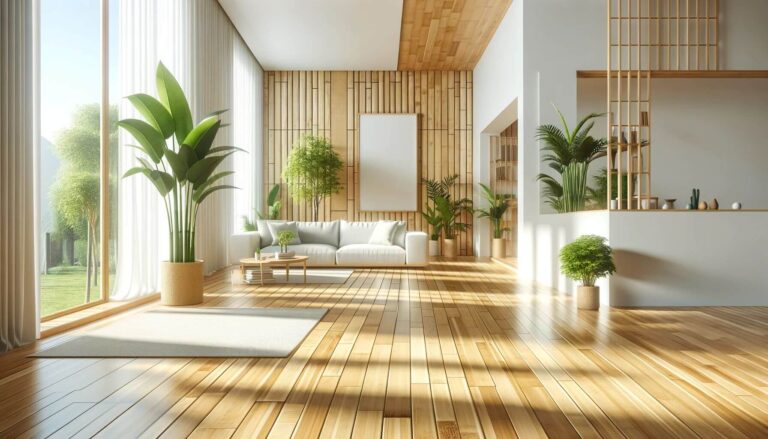
In the quest for more sustainable living practices, choosing the right materials for our outdoor spaces is crucial. Polywood, a leader in outdoor furniture crafted from recycled plastics, offers a compelling array of eco-friendly benefits that make it an ideal choice for any garden. This article delves deep into the environmental advantages of incorporating Polywood furniture into your garden, providing both a sustainable and stylish solution.
What is Polywood?
Polywood is a synthetic lumber made from recycled high-density polyethylene (HDPE) plastic, such as milk jugs and detergent bottles. Through an innovative process, these plastics are transformed into a wood-like material that retains the aesthetics of traditional wood but with enhanced durability and environmental benefits.
Comprehensive Environmental Benefits

Reduces Waste in Landfills
Every year, millions of plastic containers are disposed of in landfills. By opting for Polywood furniture, you contribute to repurposing this plastic waste. Each piece of Polywood furniture keeps dozens of plastic bottles from landfills, making a significant impact over time.
Conserves Natural Resources
Traditional wooden furniture requires timber from trees, contributing to deforestation. Polywood provides an alternative that requires no new trees to be cut down, helping to preserve forests and the biodiversity within them.
Energy Efficient Manufacturing
Compared to producing virgin plastic or harvesting new wood, recycling plastic into Polywood consumes less energy. This energy efficiency in production leads to a lower carbon footprint, which is crucial in the fight against climate change.
Longevity and Durability
Polywood furniture is designed to last for decades without significant wear and tear, which means less furniture waste over time. It resists weathering, rust, and corrosion, making it ideal for outdoor use in any climate.
No Harmful Chemicals
Unlike some treated woods, Polywood does not require harmful chemicals for maintenance. It does not leach any toxic substances into the soil, making it safe for your garden and the broader environment.
Eco-Friendly Throughout Its Lifecycle

Sustainable Production
The production of Polywood uses proprietary recycling technology that efficiently converts plastic waste into high-quality, eco-friendly lumber. This process is optimized to save energy and reduce emissions.
Low Maintenance
Polywood furniture does not require painting, staining, or waterproofing, all of which typically involve harmful chemicals. Cleaning Polywood is simple and only requires soap and water, reducing the environmental impact associated with maintenance.
100% Recyclable
At the end of its long life, Polywood furniture can be fully recycled again, ensuring that the materials continue to be used and stay out of landfills.
Impact on Local Ecosystems

Non-Invasive
Using Polywood furniture helps preserve local ecosystems by reducing the demand for wood harvested from forests. This non-invasive nature helps maintain wildlife habitats and natural water cycles disrupted by deforestation.
Promotes Cleaner Air and Water
By avoiding the use of harmful chemicals and pollutants in its manufacture and maintenance, Polywood furniture contributes to cleaner air and water, providing a healthier environment for plants, animals, and humans alike.
Immediate Benefit of Polywood
Choosing Polywood furniture for your garden is not just a matter of style and comfort; it’s a proactive step towards more sustainable living. With its significant eco-friendly benefits, Polywood allows garden enthusiasts to enjoy the beauty and functionality of their outdoor spaces while respecting and protecting the planet. As more consumers opt for environmentally responsible products, Polywood stands out as a leader in sustainable outdoor furnishing solutions, paving the way for a greener future.
By integrating Polywood furniture into your garden, you contribute to a cycle of sustainability that benefits not only your immediate environment but also the global ecosystem.



